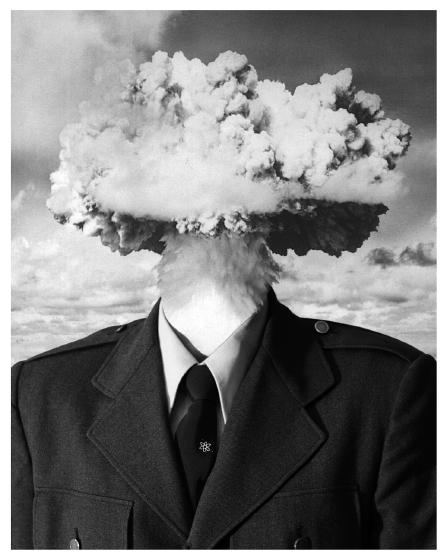"It is not the literal past that rules us: it is images of the past" -- George Steiner
I found a VHS copy of Chris Marker's "The Last Bolshevik" over at Suspect Video-an absolutely amazing video store in Toronto. With no info on the film, I was blown away by a documentary about repression and "smuggled" polemics in early Soviet Cinema. The film focuses on filmmaker Alexander Medvedkin, a contemporary of Eisenstein and recycled cinema hero Dziga Vertov. Chris Marker writes several video letters to Medvedkin, whose classic film "Happiness" follows a simple Russian farmer trying to find happiness that he can put into a wheat bag and bring home to his wife. The scenes of this film are so incredibly brilliant, funny, and bizarre you will scower the ends of the earth to actually find the film. You can see a short clip here, about how Eisenstein's fictional rendering of the storming of the Winter Palace during the October Revolution is rumored to have resulted in more deaths than the actual event itself. This movie reminds you of why the Russians got it right ten years before Western Europe and at least thirty before American Maya Deren.
"The Last Bolshevik" is also a self conscious work of recycled cinema, made evident in Marker's opening quote found at the beginning of this post. There are images in this film from some of the most experimental Soviet films (most reviled by Stalin as stylistically decadent), unreleased on video. One sequence continues to haunt me, showing several disembodied Cello's playing a thunderous piece of music superimposed over a steam train barreling towards the screen. The images are so perfectly cropped a superimposed--the light has that silver metalic sheen only old film stock can give you--good old nitrate film! In other ways I am realizing Chris Marker must have been an enormous influence on Adam Curtis, whose historical musings are evidently derivative of Marker's essays. It would be impossible not to steal from Marker whose simple and straightforward style is also so radical at the same time.
Jessica put me onto a fantastic essay by writer Jonathan Lethem in Harper's called "The Ecstasy of Influence." Lethem writes:
Most artists are brought to their vocation when their own nascent gifts are awakened by the work of a master. That is to say, most artists are converted to art by art itself. Finding one's voice isn't just an emptying and purifying oneself of the words of others but an adopting and embracing of filiations, communities, and discourses. Inspiration could be called inhaling the memory of an act never experienced. Invention, it must be humbly admitted, does not consist in creating out of void but out of chaos. Any artist knows these truths, no matter how deeply he or she submerges that knowing.
and
Eliot evidenced no small anxiety about these matters; the notes he so carefully added to The Waste Land can be read as a symptom of modernism's contamination anxiety. Taken from this angle, what exactly is postmodernism, except modernism without the anxiety?
I am impressed with Lethem's ability to explain a distinction between modernism and post-modernism that I've never heard before and seems wholly true: post-modernism had no desire to apologize for being derivative. Instead the movement celebrates its derivations in a form of artistic transparency usually hidden by artists.
A Research Site Devoted to the Past and Future of Found Footage Film and Video
"The Literary and Artistic heritage of humanity should be used for partisan propaganda purposes." - Gil J. Wolman

“A lot of people who call themselves artists now are cultural critics who are using instruments other than just written language or spoken language to communicate their critical perspective.”
-Leslie Thornton
Friday, April 20, 2007
Chris Marker's "Last Bolshevik"; Jonathan Lethem puts his money where his mouth is
Labels:
Alexander Medvedkin,
Chris Marker,
Jonathan Lethem,
T.S. Eliot